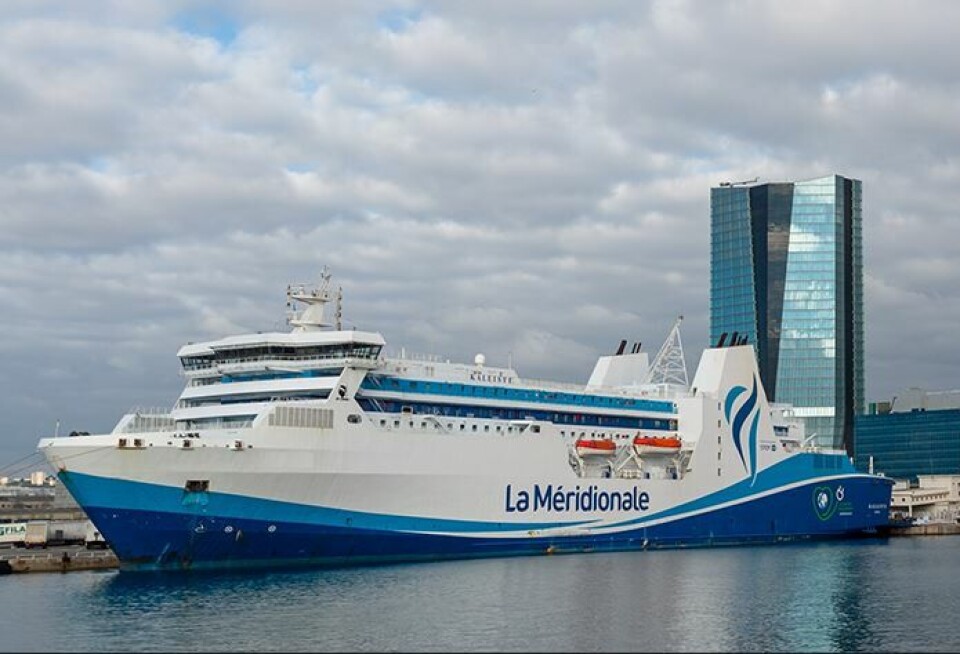-
White storks make strong return in France via nest ‘platforms’ and clipped wings
The Ligue pour la Protection des Oiseaux shares the conservation challenges in saving these birds from extinction
-
Hosting scheme in south-west France lets newcomers sample lifestyle
Households in nine Dordogne communes volunteer under Mes Nouveaux Voisins scheme
-
French boulangeries demand right for staff to work on May 1 so they can open
Artisan bakery owners can work but employees cannot, while certain industrial bakeries are allowed to remain open with workers
Marseille residents take port to court over cruise ship pollution
They say a 10-year campaign highlighting serious health problems in the French city has not hastened switch to cleaner power

The Port of Marseille is conducting a project to measure its impact on air quality in the city.
It faces a court case from residents’ associations over pollution from cruise ships and ferries.
With at least five large ferries anchored there, local residents complained during lockdown that the smelly fuel oil – more like tar than diesel – used by the ships cast a brown smog over the city that caused breathing problems.
Locals claim that the promise made by ship-owners to use only diesel fuel when close to the city has not had much effect because captains are not making the switch.
Even before lockdown, residents formed an association to voice concerns about air pollution from cruise ships, which often dock for a day and keep their engines running.
After a 10-year campaign, they launched a court case this spring, claiming lives have been put at risk by pollution due to inaction, negligence and imprudence.
Connect to electric grid
Port authorities have brought forward existing plans to provide high-capacity electric cables to the ships.
The move means cruise liners can use electricity from the grid, rather than run their engines to generate power.
Campaigners say years of talk have resulted in just three docking points being equipped with the necessary equipment.
The three installations have been made permanent, and the study is being extended to see if the port should make it compulsory for ships to obtain electricity this way when in dock.
Many of the vessels that use the port will need to have a new plug installed to access electricity from the quay.
Marseille’s port is much closer to the city centre than most French ports, making it particularly sensitive to the pollution emitted by cruise liners.
Residents complain that soot from ships covers their gardens, and that standing water outside has an oily film.
Health concerns that locals link to ship pollution include heart and lung problems, cancers, allergies and complications in the development of unborn babies.
They also say that the ‘scrubbers’ used to clean ship exhausts eject polluted water into the port, which is banned.
Things starting to change
However, things are starting to change.
One of the big ferry companies, La Méridionale, has retrofitted the engines on its flagship Piana with new exhaust systems to neutralise acidity and filter out fine particles.
The company claims the system, which removes 99% of fine and ultra-fine particles from exhaust gases, is the first of its kind on a ship.
The system reportedly stops most of the emissions of sulphur, the gas responsible for acid rain and smog.
It works by trapping pollutants in the ship’s filters, where it is then moved to land-based treatment centres.
Renaud Muselier, president of the Provence-Alpes-Côte d’Azur region, said: “Thanks to our ‘no smoking in dock’ project, we have sustainably improved air quality in our ports.
“At La Méridionale, we’re going further, and thanks to this particle filter, the most virtuous ship in the Mediterranean is taking to the sea from Marseille.”
Piana was built in 2011, can carry 800 passengers, 2,500 metres of freight trailers and 200 cars, and has a crew of 50. It is used as a ferry on the Marseille-Corsica route.
The company received grants from the French environment agency Ademe and from the regional council.
La Méridionale pioneered the port-to-ship electricity systems from 2015, and is studying the feasibility of building a gas-fuelled power station in Corsica, where the grid is insufficient for the extra power required by large ships.
The Port of Marseille says it hopes to have results of the air-quality study by early 2024, and will adjust its strategies accordingly to limit pollution.
The port is also considering expanding its fuelling station for natural gas – a fuel increasingly used by cruise ships.
Related articles
Anti-cruise ship protest in Brittany stops visitors from disembarking
Video: watch the world's biggest cruise ship arrive at Marseille
World’s largest cruise ship leaves French shipyard for sea trials
























